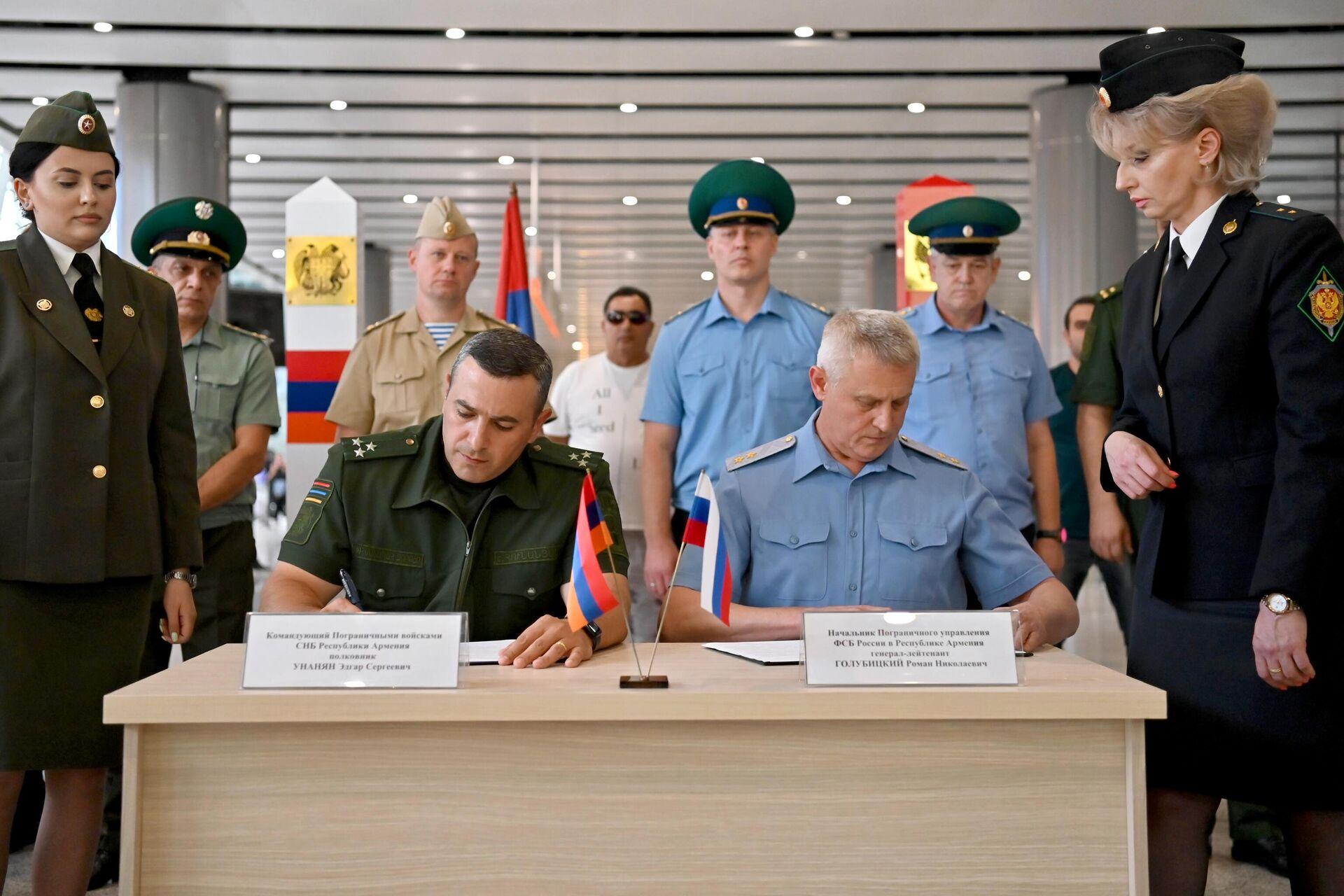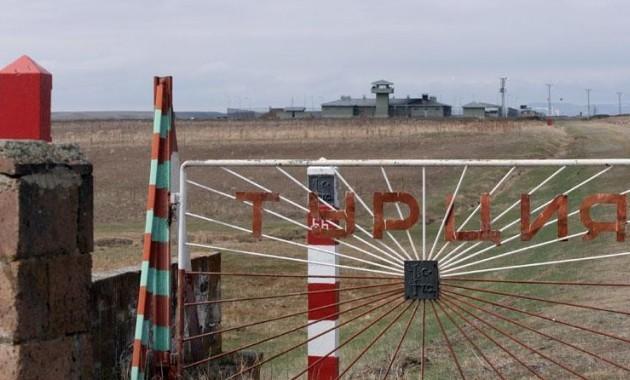Armenia’s nuclear energy deals and border security changes Geopolitical shifts
Several notable and even significant events over the past few days are more than just trends. It seems like a sharp shift in direction.
Representatives of the Border Service of the Russian Federal Security Service fully transferred the border security duties at the checkpoint of Zvartnots International Airport to the Armenian side on July 31. This means that Armenian border guards, rather than Russian ones, will be responsible for overseeing those arriving at Yerevan’s airport. The corresponding protocol was signed by Commander of the Border Troops of Armenia’s National Security Service Edgar Unanyan and Head of the Armenian branch of the Russian Federal Security Service's Border Service, Lieutenant General Roman Golubitsky. The official ceremony in Yerevan was attended by the leadership and personnel of both the Armenian branch of the Russian Federal Security Service's Border Service and the Border Troops of Armenia’s National Security Service.

Another significant message has emerged. A US company, in collaboration with the Armenian side, is conducting research on small modular reactor technologies proposed by the US for the Armenian nuclear power plant. This research is part of the plans to build a new energy unit, with technical and economic studies expected to be completed by spring 2025.
Caliber.Az reported earlier that nuclear energy involves multimillion-dollar contracts not only for supplying components and fuel but also for staff training. These contracts are long-term, bringing significant political influence. It's noteworthy that Coordinator of US Assistance to Europe and Eurasia at the US Department of State Maria Longi mentioned last year that the US was considering building modular nuclear reactors in Armenia. This clarifies the situation: the decision appears to have been made primarily by the US, with implications for both Russian border guards and Rosatom State Atomiс Energy Corporation. The move represents a significant shift in influence and competition.
A meeting was held between Armenia’s special envoy for normalisation of Armenia-Türkiye relations Ruben Rubinyan and Türkiye’s special envoy for dialogue with Armenia Serdar Kılıc on July 30. The discussions focused on technical aspects related to the potential launch of a railway between the two countries. The talks did not address the fundamental decision to resume railway services between Türkiye and Armenia. The checkpoint at "Margara" on the Türkiye-Armenia border has long been prepared to handle traffic, but this is currently designated only for third-country nationals, as agreed between Ankara and Yerevan.
However, given the repeated assertions by Turkish authorities that the reopening of routes between Türkiye and Armenia can only occur following the signing of a peace treaty between Armenia and Azerbaijan, this development is quite notable.
"The Republic of Türkiye can open its border with neighbouring Armenia once relations between Armenia and Azerbaijan have normalized," Turkish Foreign Minister Hakan Fidan stated.
Negotiations between Azerbaijan and Armenia are ongoing. We need to prepare our plan in case these negotiations result in a positive outcome, and work is underway in this direction. If the normalization process is completed, we will activate the positive scenario, we could open our border gates. However, it is no secret that normalization between Azerbaijan and Armenia is only possible if certain conditions set by Azerbaijan are met. These include changes to the Armenian Constitution and potentially some other minor issues. Without these conditions being fulfilled, a peace treaty is not feasible, as indirectly confirmed by the Turkish foreign minister.

The announcement about the meeting between the special representatives regarding the possible launch of a railway between Türkiye and Armenia provoked a notably dramatic and emotional reaction from Archbishop Bagrat Galstanyan. He pessimistically commented, “Whatever happens, it will be to our detriment. The process we are witnessing does not benefit Armenia. The most important thing is that we are unaware of the overall content of the discussion.” I seriously doubt that Serdar Kılıc, the Turkish special representative, felt it was his duty to inform Bagrat about the details of his conversation with his Armenian counterpart. Bagrat should not be informed about the content of negotiations between special representatives. As for pessimism — well, that is a personal matter.
Besides the transfer of border security responsibilities at Zvartnots International Airport, the deepening of the US-Armenia cooperation in nuclear energy, the negotiations on the railway between Türkiye and Armenia, and Galstyan’s reaction, there have been changes in Russian immigration legislation, with a notable detail. The rules for deporting individuals from Russia have been tightened. Previously, foreigners could only be deported by a court decision. Now, deportation can be carried out administratively, meaning that Russian executive authorities, specifically the Ministry of Internal Affairs, have been given the authority to make deportation decisions if an individual is found violating constitutional order in Russia. To me, this seems more than just a hint.
However, we'll have to wait and see Armenia’s future. The key is to remain observant and remember that what may be detrimental to Armenia could potentially benefit Azerbaijan.








